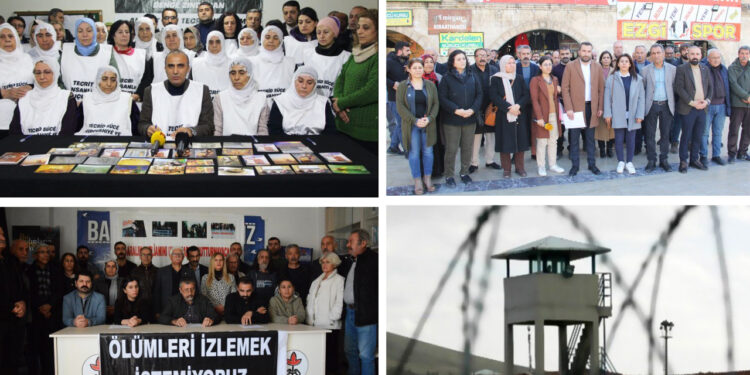A hunger strike demanding the release of PKK leader Abdullah Öcalan and a solution to the Kurdish question has reached its 24th day in Turkish prisons. Relatives of prisoners have launched a letter campaign to protest against Öcalan’s solitary confinement, highlighting widespread concern for Kurdish rights and the need for dialogue.

Prisons across Turkey are witnessing an intensifying hunger strike, now in its 24th day, demanding the release of Kurdistan Workers’ Party (PKK) leader Abdullah Öcalan and a solution to the Kurdish question. The strike began on 27 November as part of a broader campaign for “Abdullah Öcalan’s Freedom, a Political Solution to the Kurdish Problem”, set to continue until 15 February 2024.
Öcalan remains in solitary confinement in İmralı F-Type High-Security Closed Prison, unseen for 33 months. Relatives of prisoners have initiated a campaign to send letters and cards to him in protest against this isolation. This campaign, garnering support from various Kurdish rights groups, is scheduled to continue until 30 December. A press conference was held at the office of the Peoples’ Equality and Democracy Party (DEM Party) in the Bağlar (Rezan) district today, 20 December, to announce the campaign.
Prisoners’ rights advocate Kerem Canpolat emphasised the conditions of severe isolation in prisons in Turkey and Kurdistan. “We want to draw attention to this isolation, which is leaving these policies and the Kurdish question unresolved,” Canpolat said. He urged people to participate in the letter and card campaign to help break the isolation.
The campaign and hunger strikes have drawn the support of various organisations, including the Democratic Regions Party (DBP) and prisoners’ rights organisations, highlighting widespread concern over Öcalan’s confinement and the unresolved Kurdish question.
Additionally, Lawyer İbrahim Halil Öyke reported neglect from the authorities in addressing the health and dietary needs of hunger-striking prisoners. He stressed the urgency of respecting the rights of prisoners and addressing their lawful demands.








Leave A Comment